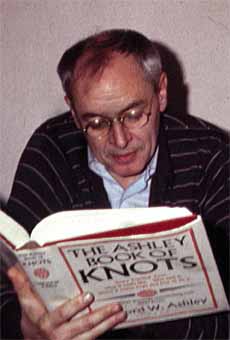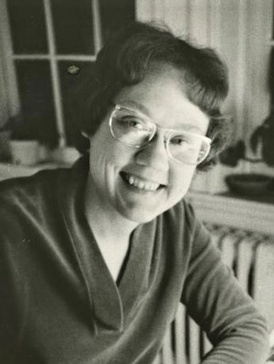Related Research Articles
Anti-psychiatry, sometimes spelled antipsychiatry without the hyphen, is a movement based on the view that psychiatric treatment is often more damaging than helpful to patients, highlighting controversies about psychiatry. Objections include the reliability of psychiatric diagnosis, the questionable effectiveness and harm associated with psychiatric medications, the failure of psychiatry to demonstrate any disease treatment mechanism for psychiatric medication effects, and legal concerns about equal human rights and civil freedom being nullified by the presence of diagnosis. Historical critiques of psychiatry came to light after focus on the extreme harms associated with electroconvulsive therapy or insulin shock therapy. The term "anti-psychiatry" is in dispute and often used to dismiss all critics of psychiatry, many of whom agree that a specialized role of helper for people in emotional distress may at times be appropriate, and allow for individual choice around treatment decisions.

Ronald David Laing, usually cited as R. D. Laing, was a Scottish psychiatrist who wrote extensively on mental illness—in particular, psychosis and schizophrenia. Laing's views on the causes and treatment of psychopathological phenomena were influenced by his study of existential philosophy and ran counter to the chemical and electroshock methods that had become psychiatric orthodoxy. Laing took the expressed feelings of the individual patient or client as valid descriptions of personal experience rather than simply as symptoms of mental illness. Though associated in the public mind with the anti-psychiatry movement, he rejected the label. Laing regarded schizophrenia as the normal psychological adjustment to a dysfunctional social context, although later in life he revised his views.
David Graham Cooper was a South African-born psychiatrist and theorist who was prominent in the anti-psychiatry movement.

Kingsley Hall is a community centre, in Powis Road, Bromley-by-Bow in the London Borough of Tower Hamlets. It dates back to the work of Doris and Muriel Lester, who had a nursery school in nearby Bruce Road. Their brother, Kingsley Lester, died aged 26 in 1914, leaving money for work in the local area for "educational, social and recreational" purposes, with which the Lesters bought and converted a disused chapel. The current Hall was built with a stone-laying ceremony taking place on 14 July 1927.
Existential psychotherapy is a form of psychotherapy based on the model of human nature and experience developed by the existential tradition of European philosophy. It focuses on concepts that are universally applicable to human existence including death, freedom, responsibility, and the meaning of life. Instead of regarding human experiences such as anxiety, alienation and depression as implying the presence of mental illness, existential psychotherapy sees these experiences as natural stages in a normal process of human development and maturation. In facilitating this process of development and maturation existential psychotherapy involves a philosophical exploration of an individual's experiences while stressing the individual's freedom and responsibility to facilitate a higher degree of meaning and well-being in his or her life.

Rutgers University–Camden is one of three regional campuses of Rutgers University, a public land-grant research university consisting of four campuses in New Jersey. It is located in Camden, New Jersey. Founded in 1926 as the South Jersey Law School, Rutgers–Camden began as an amalgam of the South Jersey Law School and the College of South Jersey. It is the southernmost of the three regional campuses of Rutgers—the others being located in New Brunswick and Newark. It is classified among "R2: Doctoral Universities – High research activity".
Aaron Esterson was a British psychiatrist, practising in Glasgow.

Stephen Jan Ticktin is a retired Canadian psychiatrist, therapist and lecturer, and a notable figure in the anti-psychiatry movement.

Barbara Gittings was a prominent American activist for LGBT equality. She organized the New York chapter of the Daughters of Bilitis (DOB) from 1958 to 1963, edited the national DOB magazine The Ladder from 1963 to 1966, and worked closely with Frank Kameny in the 1960s on the first picket lines that brought attention to the ban on employment of gay people by the largest employer in the US at that time: the United States government. Her early experiences with trying to learn more about lesbianism fueled her lifetime work with libraries. In the 1970s, Gittings was most involved in the American Library Association, especially its gay caucus, the first such in a professional organization, in order to promote positive literature about homosexuality in libraries. She was a part of the movement to get the American Psychiatric Association to drop homosexuality as a mental illness in 1972. Her self-described life mission was to tear away the "shroud of invisibility" related to homosexuality, which had theretofore been associated with crime and mental illness.

John Ercel Fryer, M.D. was an American psychiatrist and gay rights activist best known for his anonymous speech at the 1972 American Psychiatric Association (APA) annual conference, where he appeared in disguise and under the name Dr. Henry Anonymous. That event has been cited as a key factor in the decision to remove homosexuality as a mental illness from the APA Diagnostic and Statistical Manual of Mental Disorders. The APA "John E. Fryer, M.D., Award" is named in his honor.
Ross V. Speck, MD (1927-2015), was a psychiatrist, psychoanalyst and family therapist. He had a strong interest in sociology and anthropology and did research in family therapy of schizophrenia, drugs, depression, and adolescents. He was one of the "first generation" of family therapists and a founder of the Family Institute of Philadelphia. In addition, he was the originator of NetWork Therapy.
The Critical Psychiatry Network (CPN) is a psychiatric organization based in the United Kingdom. It was created by a group of British psychiatrists who met in Bradford, England in January 1999 in response to proposals by the British government to amend the Mental Health Act 1983. They expressed concern about the implications of the proposed changes for human rights and the civil liberties of people with mental health illness. Most people associated with the group are practicing consultant psychiatrists in the United Kingdom's National Health Service (NHS), among them Dr Joanna Moncrieff. A number of non-consultant grade and trainee psychiatrists are also involved in the network.
Thomas Forrest Main (1911–1990) was a psychiatrist and psychoanalyst who coined the term 'therapeutic community'. He is particularly remembered for his often cited paper, The Ailment (1957).
The following outline is provided as an overview of and topical guide to the psychiatric survivors movement:
The congress on the Dialectics of Liberation was an international congress organised in London between 15 and 30 July 1967. It was organised by the American educationalist Joe Berke. The scope of the conference was to "demystify human violence in all its forms, and the social systems from which it emanates, and to explore new forms of action". A short film, Ah, Sunflower, directed by Robert Klinkert and Iain Sinclair, and featuring R. D. Laing, Allen Ginsberg, Stokely Carmichael and others, was filmed around the Dialectics of Liberation conference.

The Politics of Experience and The Bird of Paradise is a 1967 book by the Scottish psychiatrist R. D. Laing. The book comprises two parts – the first a collection of seven articles previously published between 1962 and 1965, the second a free-flowing quasi-autobiographical piece of poetry and prose.
The following outline is provided as an overview of and topical guide to psychiatry:
Asylum is a 1972 documentary film written and directed by Peter Robinson about a therapeutic community for people with schizophrenia at Philadelphia Association Communities in London. It features the co-founders of the community, Leon Redler and the psychiatrist R. D. Laing.

David Kennedy Henderson FRSE FRCPE was a Scottish physician and psychiatrist and served as president of the Royal College of Physicians of Edinburgh 1949 to 1951.
Eric Graham Howe was a British psychiatrist notable for his early, interdisciplinary approach to psychotherapy in the 1930s, featuring elements of psychodynamic psychology, existential phenomenology, Eastern philosophy and Christian spirituality. After serving in World War I, he became interested in Sigmund Freud and decided to study psychiatry. Following medical school, he worked at the Tavistock Clinic in the 1920s and 1930s, and established the Open Way Clinic in the 1950s, later renamed the Langham Clinic. Towards the end of his life, he was known as a practicing Druid. He was the author of more than a dozen books and was influential among a number of writers and psychiatrists, including Israel Regardie, Jean Lucey Pratt, Alan Watts, Henry Miller, and R.D. Laing.
References
- ↑ "R.D.Laing biography". Laing Society. Archived from the original on 2 March 2007. Retrieved 14 September 2016.
- ↑ Cooper, Robin; Gans, Steven; Heaton, J.M.; Oakley, Haya; Zeal, Paul (1989). "Beginnings". Thresholds between Philosophy and Psychoanalysis: Papers from the Philadelphia Association. London: Free Association Books. p. 31. ISBN 1853430412. OCLC 24289051.